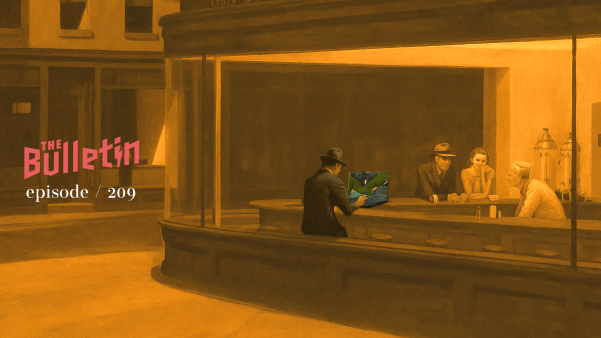“Pop culture [is] the language of our society and especially our generation,” says Josh Spencer, a Gen-Xer and editor in chief of Stranger Things magazine. “I often view life as a film with myself as an actor in it and God as the producer/director. It allows me to see even the smallest event in my life as integral to the greater storyline.” His monthly online publication uses this integration of life, faith, and pop culture to encourage those “excited about seeking truth and God outside the proverbial box.”Brian Heflin, coproducer and writer for the site, says he has a passion “to communicate the principles of God in the language of today.” Many of his friends “were raised in or exposed to ‘churchianity’ and they would immediately close down as soon as you would mention any of the standard Christian catchphrases: sin, sanctification, atonement, born again, saved, sinner. My personal challenge has been to start over and ask what do I really know about any of these most basic words that describe the dynamics of a relationship with God. If I understood it I could say it in my own words. … So that has been my prayer to God for the last five or six years: ‘Help me understand you and your principles and the world I live in clearly enough to express them new, fresh, and relevant.’ … I believe every individual and every generation has their own unique way of naming the world and expressing God-to-me. It is still the God of my fathers, the same, immutable Creator, but there is a way that he is specifically known to me and this generation.”Movies are one tool Spencer and Heflin use to communicate their understanding of God to readers. In one of Heflin’s editorials, he calls the Incarnation “the ultimate demonstration of His willingness to speak to our level,” and compares it to a famous movie scene. “It’s like that little girl in Aliens who was the only one who managed to survive the alien invasion of her space station. She was so traumatized that she could not respond to the rescue party’s attempt to lure her out of her hiding place in the cramped recesses and corridors of the ventilation system. Sigourney Weaver’s character, Ripley, had to squirm her way down through the passages of that girl’s little world and try to reach her in a place where she understood that she was safe.”Stranger Things is also willing to question the norms of its generation. Spencer says some young Christians “are so into the culture that they have none of the holy ‘strangeness’ about them that people headed for eternity should have.” Heflin calls this a “reactionary pendulum swing. I think some may be diving headlong into popular culture because they are reacting against years of legalism and separatism that demonized the ‘worldly’ culture.”Spencer pondered the value of deep immersion into media in a recent editorial. “The constant buzz of … TV, movies, magazines, video games, CDs, the radio, the Internet … [is] like a million tractor beams hitting me at once, so that my little starship can never escape to some silent part of the galaxy where I could ponder the stars and who made them. … So what do I do to stop this? Is it too late? How do I regain or encourage the ability to really think something through? Do I rid myself of all the noise? The e-mails? The TV? The stereo? The books? What should remain?” The spiritual distraction of media infatuation can overwhelm even those Christians who make art, Spencer says.The recent end-times movies make him “wonder why they’re wasting their time making films that really have little to do with Christ or truth and more to do with mostly extra-Biblical prophetic mythologies incomprehensible to the common man. Paul said to think on these things: truth, beauty, nobility, excellence, etc. Christians who are making movies should think on these things.”The correct location between the poles of media abstinence and media infatuation is something Stranger Things leaves to the reader. “I’m discouraged by those polarizations,” Spencer says, “but encouraged by a few who are stuck in the middle, unsure of what the best take is but willing to brave their way to a new, freer perspective.” He describes his site as a place for “people in juxtaposition—between high culture and low, God-fear and irreverence, this world and the next.” Heflin says their job as writers is to keep the struggle honest. “It has become sort of a habit to look for underlying spiritual themes and lessons which can be extracted from movies. Sometimes this is silly because you can find just about anything if you are focused on it hard enough.” Instead, he tries to describe the effects of a film on his perspective or character. “Through this medium I have felt conviction about wrong attitudes and perceptions, I have had my heart pierced with compassion for people groups that I never felt connected to before. I have received encouragement to persevere in hardship, understanding about relationships, [and] revelation about the heart of God toward mankind.”Spencer sees long-term potential for his project; he says it’s “actually in a start-up phase right now; eventually I hope to take it to print and make it a full-time paying effort for myself and many others.” Regardless of its success, though, he won’t be giving up on his Gen-X preoccupation with music, movies, and other art. “I plan on being involved in pop culture media for the rest of my life, whether examining it or creating it myself.”
Steve Lansingh is editor ofthefilmforum.com, a weekly Internet magazine devoted to Christianity and the cinema.
Read Christianity Today‘s other profiles of Christian movie reviewers on the Internet:
David Bruce of Hollywood Jesus
Doug Cummings of Movies & Ministry
Jeffrey Overstreet of GreenLake Reflections Michael Elliott and Holly McClure of Crosswalk.com J. Robert Parks of The Phantom Tollbooth
Copyright © 2000 Christianity Today. Click for reprint information.








